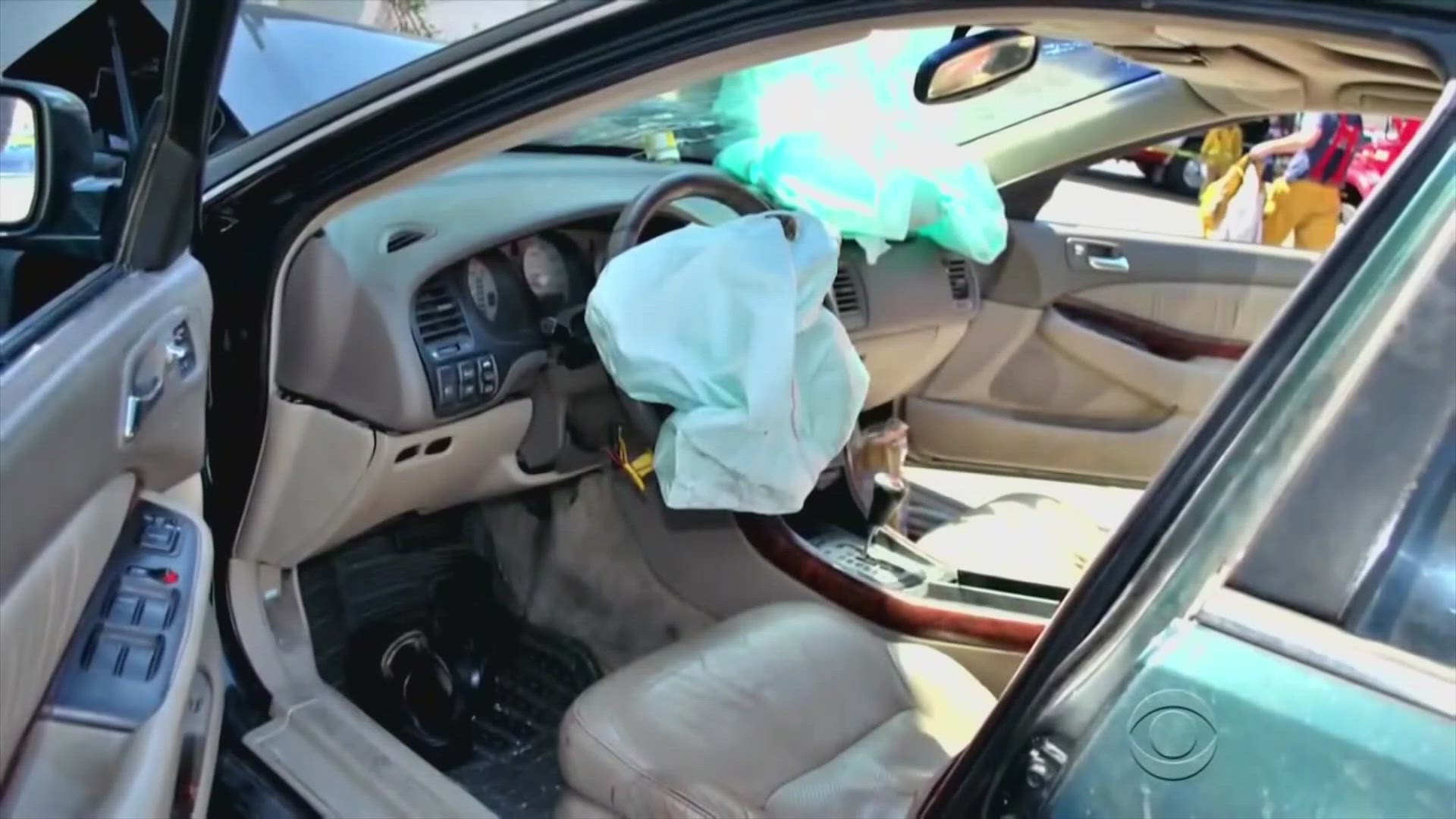COLUMBUS, Ohio — A disguised danger is still on Ohio roadways. A CARFAX report based off National Highway Transportation Safety Administration data showed millions of vehicles in the United States still had faulty airbag inflators by the now-bankrupt company, Takata Airbags.
In 2015, U.S. Transportation Secretary Anthony Foxx called it, "probably the most complex consumer safety recall in U.S. history." Forty million vehicles across 19 automakers were pulled because of inflators. A 28th death in the United States, linked to these airbags, was announced by U.S. regulators in September.
Close to 10 years after the massive recall, millions of vehicles are still impacted, with many drivers unaware about the dangers.
“We're a little alarmed to discover that six and a half million cars still need these airbags replaced, more than 200,000 in Ohio and almost 60,000 in the Columbus area,” said Patrick Olsen, the editor-in-chief at CARFAX.
Takata used ammonium nitrate to inflate air bags in a crash. The small explosion damaged parts of the metal canister, sending shrapnel into the vehicle.
“These airbags when they're exposed to heat and humidity over a long period of time can develop moisture inside of those chemicals that creates an explosion that far exceeds what the expectations are, and that can turn the metal ring around the airbag into shrapnel, literally flying pieces of metal that can enter the cabin of a car,” said Olsen. “More than 400 people have been injured.”
This summer, Ford and Mazda issued ‘do not drive’ alerts for certain models related to Takata airbags.
Valley Ford of Columbus gave Consumer 10 a tour of their facility where they have a mobile service that can come to a car owners’ home and replace defective airbags for free.
“The biggest thing is that you never know when they could go off,” said Jason Schaub, the general manager at Valley Ford of Columbus. “We have to create that awareness again, to get people in, create that urgency. A lot of the cars may not even be on the road anymore, but the ones that are, it's extremely important to get them replaced right away.”
Schaub told Consumer 10 that Ford has canvassers searching for affected vehicles, which come to peoples’ homes based off of Vehicle Identification Numbers.
To view a list of "Do Not Drive vehicles" from the National Highway Transportation Administration, and to check your VIN for recalls, click here.

